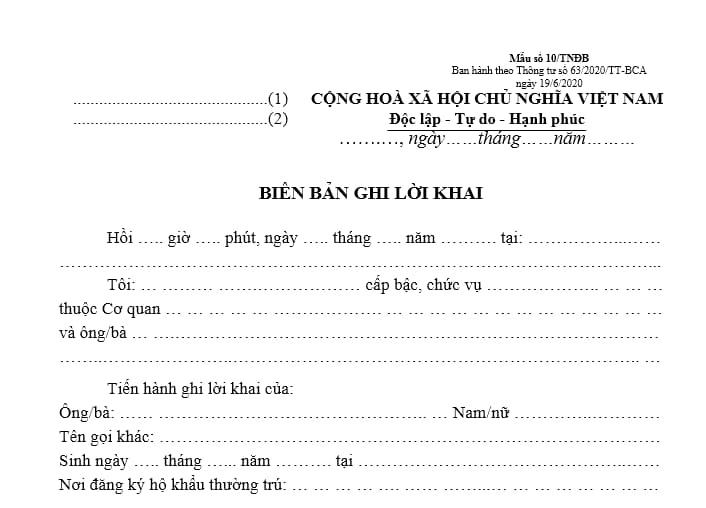The Impact Of Canada-China Relations On Canola Trade

Table of Contents
Geopolitical Tensions and Their Influence on Canola Trade
The seemingly stable relationship between Canada and China has been significantly strained in recent years. Events like the arrest of Huawei CFO Meng Wanzhou in Canada in 2018, and subsequent extradition proceedings, triggered a sharp deterioration in bilateral relations. These political tensions didn't exist in a vacuum; they directly influenced trade decisions and negotiations, particularly regarding canola.
- Specific examples of diplomatic disputes affecting canola trade: The arrest of Meng Wanzhou was quickly followed by Chinese import restrictions on Canadian canola, suggesting a direct link between political discord and trade retaliation. Other diplomatic spats, though not always explicitly stated, also cast a shadow over the trade relationship.
- Impact of shifting political alliances on the trade dynamic: Global power dynamics and shifting political alliances also play a role. China's growing assertiveness on the world stage and its increasing competition with Canada's allies influence the overall trade environment and create uncertainty for Canadian canola exporters.
- Analysis of statements made by officials from both governments regarding canola: Public statements from Canadian and Chinese officials often reflect the strained relationship, highlighting the political dimension of the canola trade dispute and the challenges in finding common ground. Analyzing these statements reveals the complexity of the situation and the lack of trust between the two governments.
China's Import Restrictions and Their Economic Impact on Canadian Canola Farmers
China's imposition of various restrictions on Canadian canola imports has had a devastating impact on Canadian farmers. These restrictions have included tariffs, outright bans, and increased scrutiny of shipments, significantly reducing the volume of canola exported to China.
-
Decreased revenue and profit margins: The loss of the Chinese market, a major importer of Canadian canola, has led to a sharp decline in revenue and profit margins for Canadian canola farmers. Many have struggled to find alternative markets quickly enough to compensate for the losses.
-
Job losses in the agriculture sector: The economic downturn in the canola sector has resulted in job losses across the agricultural value chain, impacting farmers, transportation workers, and processing plant employees.
-
Impact on rural communities reliant on canola production: Rural communities heavily reliant on canola production have faced severe economic hardship, with businesses and services suffering due to the decreased agricultural activity.
-
Statistics showcasing the volume of canola trade before and after the restrictions: Data comparing the volume of canola exported to China before and after the imposition of restrictions clearly illustrates the dramatic reduction in trade. This quantifiable loss highlights the significant economic impact.
-
Data on price fluctuations in the canola market: Price fluctuations in the global canola market, partly influenced by the Canada-China trade dispute, further compounded the challenges faced by Canadian farmers.
-
Quotes from Canadian farmers affected by the trade dispute: First-hand accounts from Canadian farmers affected by the trade dispute provide powerful insights into the human cost of the political tensions.
Diversification Strategies for Canadian Canola Exporters
Faced with the challenges of reduced access to the Chinese market, Canadian canola exporters have been actively pursuing diversification strategies. This involves exploring and developing new markets and trading partners to reduce reliance on a single, potentially volatile, market.
- Examples of new markets being explored (e.g., India, Europe): Canada has been actively engaging with countries like India and those in the European Union to increase canola exports. These new markets present opportunities, but also considerable challenges.
- Challenges associated with entering new markets (e.g., regulations, logistics, competition): Navigating diverse regulations, establishing reliable logistics networks, and competing with established players in new markets present significant hurdles.
- Government initiatives supporting diversification efforts: The Canadian government has implemented various programs and initiatives to support farmers and exporters in their diversification efforts, including financial assistance and market access initiatives.
Potential for Future Cooperation and Resolution in Canada-China Canola Trade
While the current relationship is strained, the potential for improved Canada-China relations and the resumption of normal canola trade remains. This will require diplomatic engagement and a willingness from both sides to address the underlying issues.
- Potential avenues for diplomatic engagement between the two countries: Open communication channels, facilitated by international organizations or through bilateral discussions, could be crucial for de-escalating tensions and resolving the trade dispute.
- The influence of global economic factors on the resolution of the dispute: Global economic conditions and the mutual benefits of trade could incentivize both countries to find a solution that benefits both parties.
- Long-term outlook for Canada-China canola trade: The long-term outlook for Canada-China canola trade depends on the evolution of the political relationship and the ability of both sides to find common ground. While uncertainty remains, the potential for renewed trade remains.
Navigating the Future of Canada-China Canola Trade
The Canada-China relationship has profoundly impacted canola trade, creating significant economic and political challenges for Canada. Diversification strategies are crucial for mitigating future risks, but resolving the underlying political tensions is paramount for a sustainable and robust trade relationship. Continued diplomatic efforts are essential to address the issues and pave the way for improved cooperation. To effectively navigate the complexities of this trade relationship, it is vital to monitor Canada-China canola trade closely, understand the impact of Canada-China relations on canola exports, and stay updated on the future of Canada-China canola trade.

Featured Posts
-
 Pozitsiya Stivena Kinga Stosovno Trampa Ta Maska Pislya Yogo Povernennya Na Kh
May 09, 2025
Pozitsiya Stivena Kinga Stosovno Trampa Ta Maska Pislya Yogo Povernennya Na Kh
May 09, 2025 -
 Bristol Airport Stalking Arrest Polish Womans Mc Cann Connection
May 09, 2025
Bristol Airport Stalking Arrest Polish Womans Mc Cann Connection
May 09, 2025 -
 Palantir Stock Forecast Assessing Q1 2024 Government And Commercial Growth
May 09, 2025
Palantir Stock Forecast Assessing Q1 2024 Government And Commercial Growth
May 09, 2025 -
 How Did Donald Trumps First 100 Days Affect Elon Musks Wealth
May 09, 2025
How Did Donald Trumps First 100 Days Affect Elon Musks Wealth
May 09, 2025 -
 Tien Giang Bao Mau Tat Tre Toi Tap Loi Khai Gay Phan No
May 09, 2025
Tien Giang Bao Mau Tat Tre Toi Tap Loi Khai Gay Phan No
May 09, 2025
Latest Posts
-
 Improving Wheelchair Accessibility On The Elizabeth Line
May 09, 2025
Improving Wheelchair Accessibility On The Elizabeth Line
May 09, 2025 -
 Mind The Gap Accessibility For Wheelchair Users On The Elizabeth Line
May 09, 2025
Mind The Gap Accessibility For Wheelchair Users On The Elizabeth Line
May 09, 2025 -
 Driver Charged After Fatal Collision Killing Two In Elizabeth City
May 09, 2025
Driver Charged After Fatal Collision Killing Two In Elizabeth City
May 09, 2025 -
 Police Investigate Fatal Accident Involving Two Pedestrians In Elizabeth City
May 09, 2025
Police Investigate Fatal Accident Involving Two Pedestrians In Elizabeth City
May 09, 2025 -
 Elizabeth City Road Double Pedestrian Fatality Confirmed By Police
May 09, 2025
Elizabeth City Road Double Pedestrian Fatality Confirmed By Police
May 09, 2025
